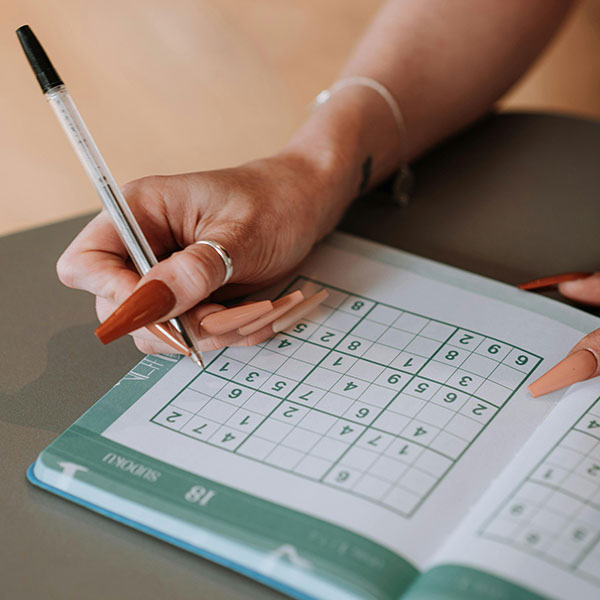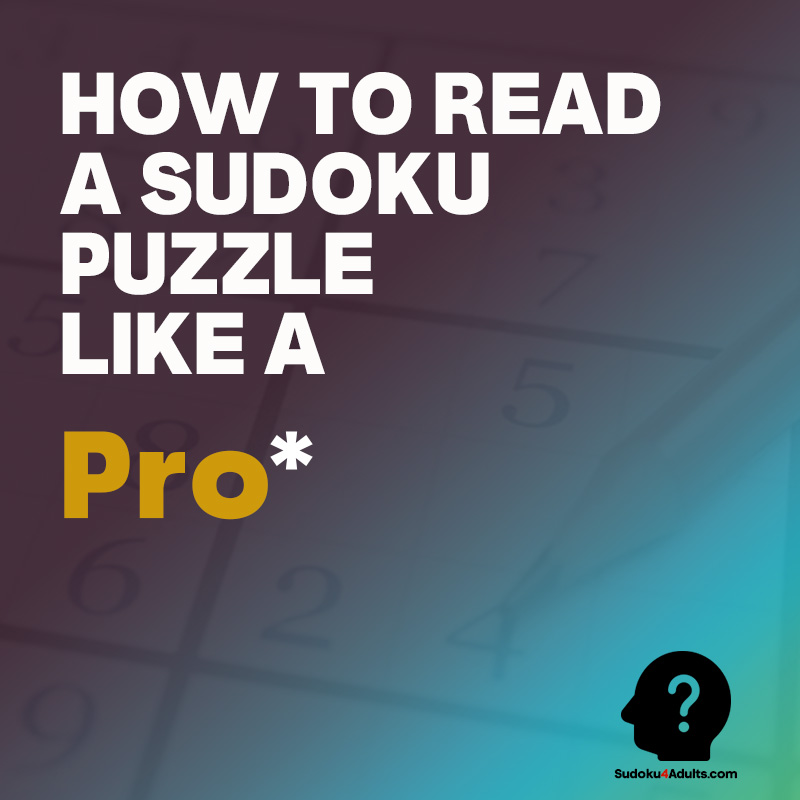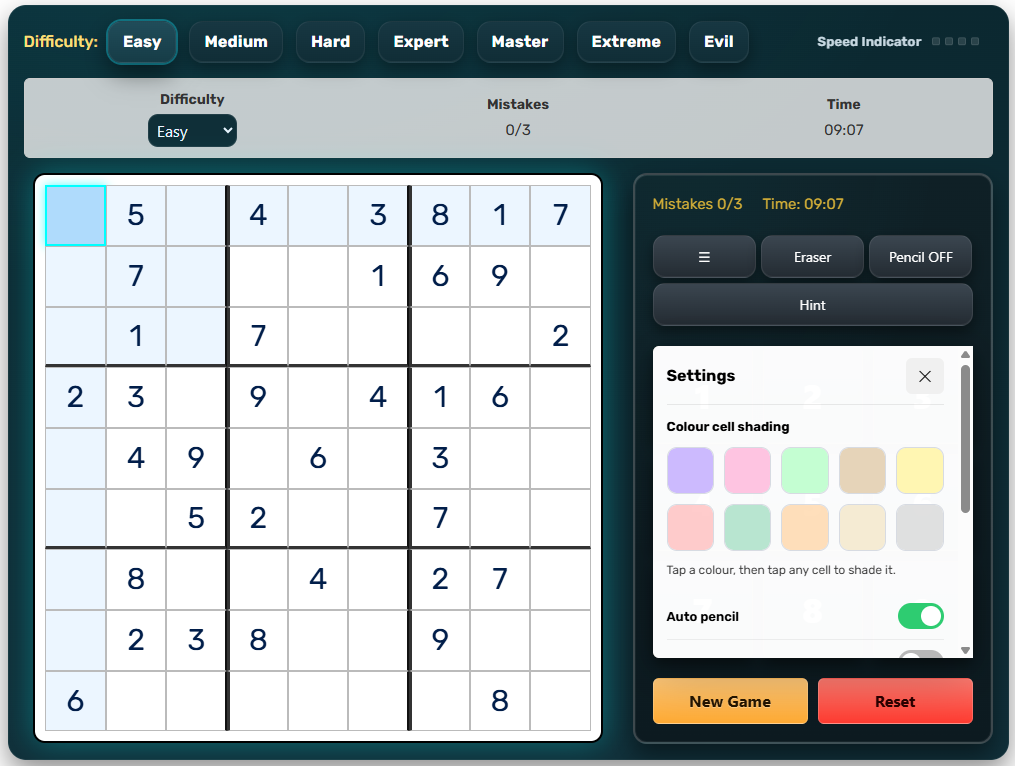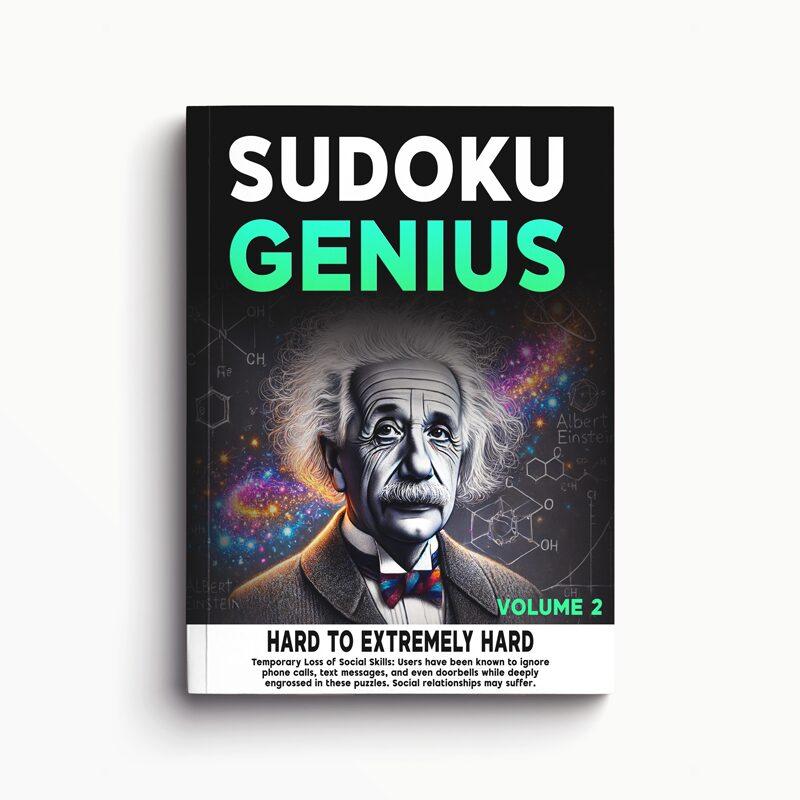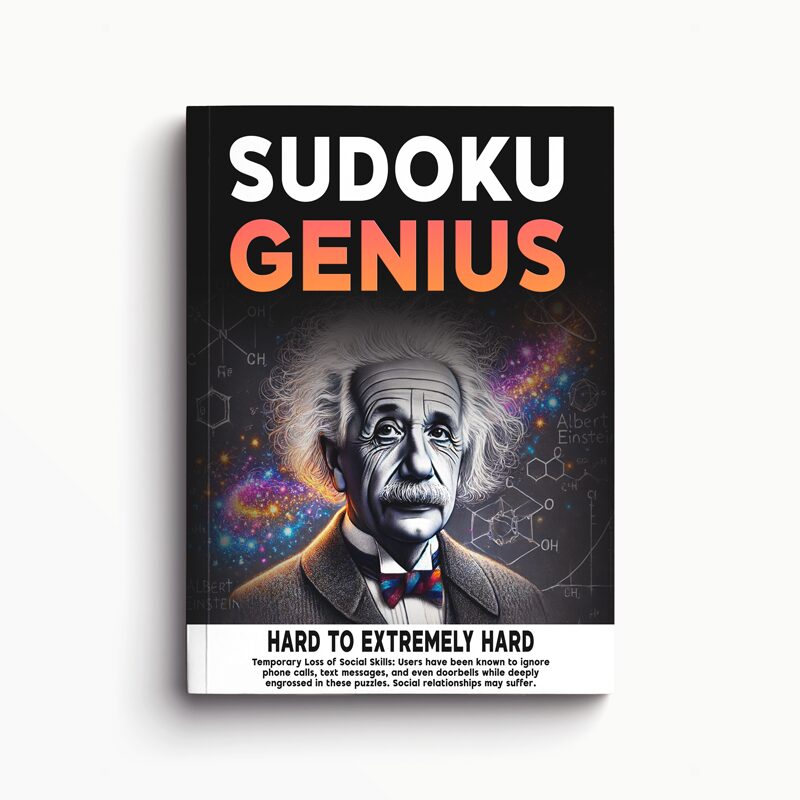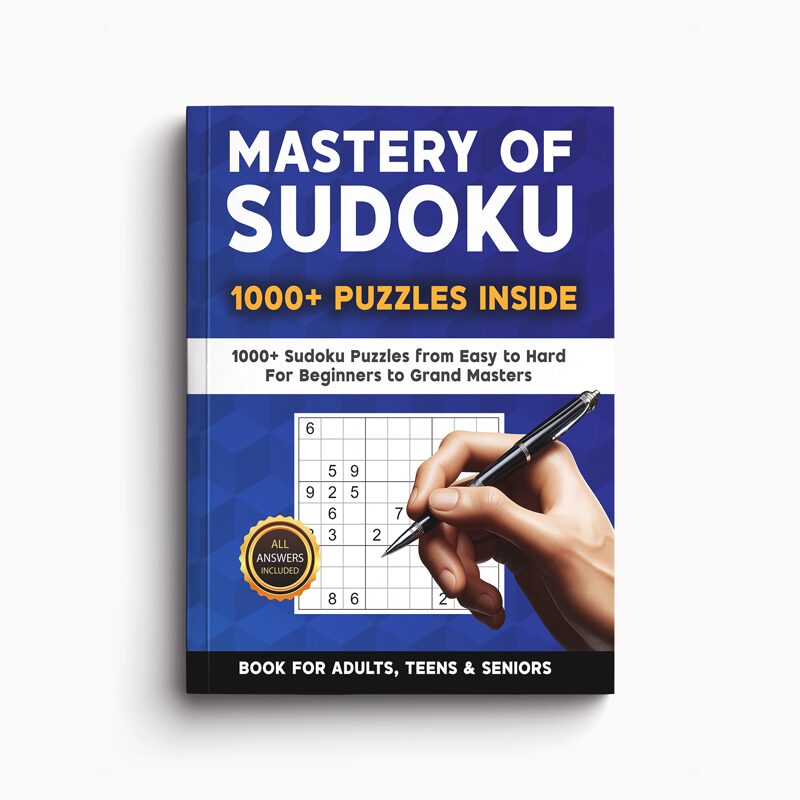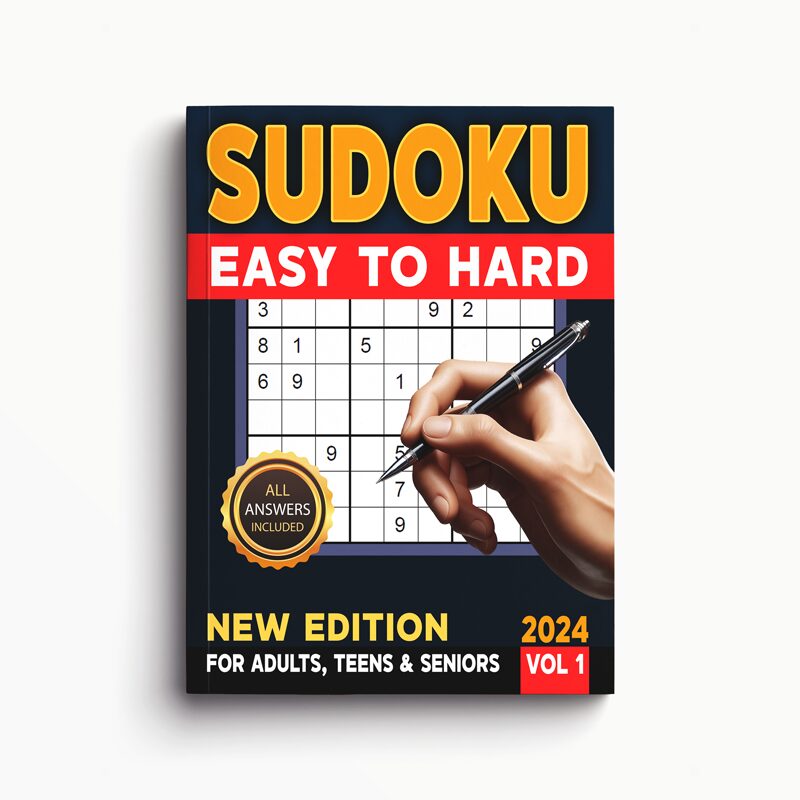5 Surprising Health Benefits of Playing Sudoku Daily
Did you know that committing just five minutes a day to a seemingly simple puzzle can have profound effects on your mental and physical well-being? While many of us turn to elaborate self-help routines or high-intensity workouts to stay sharp and stress-free, one of the most accessible—and enjoyable—ways to boost brain power might already be sitting on your coffee table. That’s right: playing daily Sudoku isn’t just a fun pastime—it’s a surprisingly effective tool for cognitive enhancement, stress relief, and even healthy aging. In this article, we’ll explore five scientifically backed health benefits of playing Sudoku daily and making it a habit worth cultivating. Ready to discover how a five-minute grid can reshape your brain, mood, and sleep? Let’s dive in.
Accelerates Brain Plasticity and Neurogenesis
Most people think of puzzles as simple memory-test games—but Sudoku goes far deeper, stimulating the very growth and rewiring of your brain.
When you tackle a Sudoku grid, you engage multiple cognitive processes simultaneously: pattern recognition, logical deduction, working memory, and sustained attention. These demands trigger the release of growth factors like BDNF (brain-derived neurotrophic factor), which support the birth of new neurons (neurogenesis) and the strengthening of synaptic connections (neuroplasticity).¹ One longitudinal study found that adults who engaged in daily problem-solving activities exhibited increased hippocampal volume over just eight weeks, suggesting actual structural growth in memory-critical regions.²
Imagine each Sudoku puzzle as a mini “workout” for your mind. Just as lifting weights builds new muscle fibers, methodically filling in each number recruits neural circuits, forcing them to adapt, grow, and communicate more efficiently. Over time, this enhanced connectivity translates into sharper reasoning skills, better multitasking, and improved learning speed.
Quick Tip: Start your morning routine with a “Medium” difficulty puzzle from Sudoku. Track your progress by noting completion times—watching them drop is as motivating as seeing your running pace improve!

Acts as a Natural Stress Reliever and Mindfulness Exercise
In our always-on digital world, stress has become the default state for many. Between emails, notifications, and never-ending to-do lists, our brains rarely get a moment’s peace. Enter Sudoku: the deceptively simple grid that can usher you into a state of calm focus known as “flow.”
Flow, a term coined by psychologist Mihály Csíkszentmihályi, describes that sweet spot where challenge meets skill, and time seems to melt away.³ When you zero in on a Sudoku puzzle, your prefrontal cortex dials down ruminative thoughts—no more worry loops about tomorrow’s meeting or last night’s argument. Instead, your full attention rests on numbers and logic, lowering cortisol (the stress hormone) and promoting relaxation.
Compared to passive scrolling through social media—an activity linked to increased anxiety—Sudoku offers active engagement and a sense of control. A controlled trial comparing puzzle-solving to guided meditation found that participants who did 10 minutes of daily number puzzles reported similar reductions in perceived stress as those who practiced mindfulness exercises.⁴
Practical Trick: Keep a small Sudoku booklet at your desk. Whenever you feel the midday slump or a stress spike, take a five-minute “puzzle break” instead of reaching for your phone. You’ll return to work calmer, sharper, and ready to tackle tough tasks.
May Reduce Risk of Age-Related Cognitive Decline
As we age, our brains naturally lose some of their sharpness, and conditions like mild cognitive impairment and dementia become concerns for many. But emerging research suggests that daily mental challenges—like Sudoku—can build a cognitive reserve that delays, and sometimes even prevents, significant decline, another clear example showing the health benefits of playing Sudoku.
A landmark longitudinal study observing 2,800 older adults over a decade found that those who engaged in regular puzzle-solving activities experienced up to 30% slower rates of memory decline compared to non-puzzlers.⁵ This protective effect is attributed to the continuous mental workout that puzzles provide, enhancing neural resilience. Even short, consistent sessions—five to ten minutes per day—compounded over months and years to deliver measurable benefits.
Take the example of Richard, a 72-year-old retiree who began playing Sudoku to fill idle afternoons. Within six months, his family noticed improved conversational recall and faster reaction times when playing card games. “I feel more alert and engaged,” he says, “like my brain has been given a new lease on life.”
Habit Builder: Incorporate Sudoku into your evening routine—swap 10 minutes of TV time for a Medium puzzle. Over weeks and months, you’ll be investing in a sharper future.

Improves Sleep Quality by Calming Pre-Bedtime Routines
Struggling to switch off at night? Blue light from screens and racing thoughts can keep you tossing and turning. Printable sudoku puzzles provide a perfectly balanced, screen-free pre-sleep activity that lulls your mind into restfulness. You can download free printable sudoku puzzles at Sudoku4Adults.
In a controlled sleep study, participants who engaged in 15 minutes of paper-based puzzles before bed fell asleep an average of 12 minutes faster than those who read on a tablet.⁶ The focused yet low-arousal nature of Sudoku quiets the mental chatter that often keeps us awake, reducing bedtime rumination and promoting sleep onset.
Try this: leave a small stack of Sudoku printouts on your nightstand along with a pen. When you lie down, resist the urge to scroll your phone. Instead, complete a quick puzzle in soft lamplight. The gentle mental engagement eases the transition from wakefulness to restful slumber, helping you wake up feeling refreshed.
Sleep-Hygiene Hack: Pair your nightly Sudoku with a cup of caffeine-free herbal tea. Focus on each number you write—breathe slowly and let the day’s stresses fade away.
Boosts Mood and Emotional Resilience
Few activities yield the instant gratification of completing a challenging puzzle. That micro-win triggers a surge of dopamine—the neurotransmitter associated with pleasure and reward—lifting your mood and fostering emotional resilience.⁷
Regular Sudoku practice cultivates a growth mindset: instead of fearing failure, you learn to embrace challenges and celebrate incremental progress. Each filled square reinforces self-efficacy (“I solved that!”), which carries over into other areas of life—work presentations, creative projects, or social interactions.
Consider Sarah, who struggled with afternoon blues at her corporate job. By dedicating her coffee break to Sudoku, she found an immediate mood lift and increased motivation to power through the rest of the day. “Every time I finish a puzzle, I feel like I’ve conquered something,” she explains. “It reminds me I can tackle anything.”
Mood-Boosting Tip: After solving a puzzle, jot down one positive thought or achievement in a mood journal. Over time, this paired habit reinforces your brain’s association between Sudoku and positive feelings.
How to Build a Sustainable Daily Sudoku Habit
Choose the Right Difficulty: Start at a Medium level on Sudoku so you feel challenged but not overwhelmed.
Anchor to an Existing Routine: Link Sudoku to breakfast, your commute, or evening wind-down—consistency is key.
Mix Formats: Rotate between print puzzles, mobile apps, and online grids to keep things fresh.
Track Your Wins: Use a simple calendar or habit-tracking app to mark each day you solve a puzzle—watch your chain grow!
Engage a Buddy: Challenge a friend or join an online Sudoku community for accountability and friendly competition.
From rewiring your brain to melting away stress, improving sleep, and uplifting your mood, the humble Sudoku puzzle delivers a remarkable array of health benefits—all in just a few minutes each day. Ready to transform your mental fitness and well-being? Begin your five-minute daily ritual now: head over to Sudoku and dive into today’s challenge. Your brain—and your health—will thank you.
FAQ Section
Q1: What exactly is Sudoku and how do I get started?
Sudoku is a logic-based number puzzle where you fill a 9×9 grid so each row, column, and 3×3 subgrid contains all digits from 1 to 9. To start, pick an easy or medium puzzle from Sudoku, scan for obvious single-cell placements, then progressively use elimination and pattern-recognition strategies.
Q2: How long should I play Sudoku each day for health benefits?
Just five to ten minutes of daily Sudoku can deliver measurable benefits in neuroplasticity, stress reduction, and mood enhancement. Consistency matters more than duration—short, daily sessions are ideal.
Q3: Can Sudoku help if I’m already under a lot of stress?
Absolutely. Sudoku induces a flow state—focused immersion that diverts attention from worries, lowering cortisol levels similarly to meditation and providing an instant mental break.
Q4: Is there such a thing as too much Sudoku?
While Sudoku is low-risk, balance is key. Limit sessions to 15–20 minutes if you notice eye strain or reduced concentration. Complement puzzle time with other activities like walking or social interaction.
Q5: Where can I find high-quality daily Sudoku puzzles?
For fresh, well-balanced puzzles each day, visit the Medium-level section on Sudoku, which offers printable and digital puzzles for all skill levels.
Article Refrences
Train Your Brain – Harvard Health Publishing
https://www.health.harvard.edu/mind-and-mood/train-your-brain
Building a Cognitive Reserve Offers Brain Protection in Old Age – Harvard Health Publishing
https://www.health.harvard.edu/mind-and-mood/building-a-cognitive-reserve-offers-brain-protection-in-old-age
Cognitive Health and Older Adults – National Institute on Aging
https://www.nia.nih.gov/health/brain-health/cognitive-health-and-older-adults
Association of Crossword Puzzle Participation with Memory Decline – Journal of the American Medical Association via PubMed Central
https://www.ncbi.nlm.nih.gov/pmc/articles/PMC3885259
Cognitive and Hippocampal Changes Weeks and Years After Memory Training – Scientific Reports
https://www.nature.com/articles/s41598-022-11636-4
Flow (psychology) – Wikipedia
https://en.wikipedia.org/wiki/Flow_(psychology)
Evaluation of Stress and Cognition Indicators in a Puzzle Game – Frontiers in Psychology via PubMed Central
https://www.ncbi.nlm.nih.gov/pmc/articles/PMC9985795
Evening Use of Light-Emitting eReaders Negatively Affects Sleep, Melatonin, and Sleep Latency – Proceedings of the National Academy of Sciences
https://www.pnas.org/doi/10.1073/pnas.1418490112 PNAS

